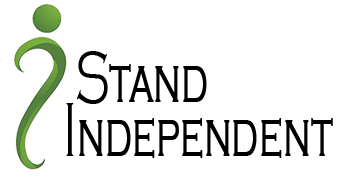Medical
An exhaustive list of medical supplies is impossible. Not even hospitals have everything at all times. However this list likely goes well beyond what any but the most serious prepper has. Look over the list and perhaps you’ll see a few things you want to add to your supplies.

- Oral antibiotics
- Antibiotic ointment and/or antibacterial herbal salves
- Ace bandages- multiple sizes
- Kerlix or rolled gauze
- Steri-strips and butterfly bandages to close minor lacerations
- TONS of gauze/dressings (BOTH: sterile and non-sterile 4x4s. Include lots of non-adherent “telfa” pads so healing wounds won’t stick to the dressing)
- ABD pads (usually 5×9), also called combine dressings
- Tapes- include DUCT, adhesive and paper ( for adhesive tape allergies)
- Quality bandage scissor/trauma shears ( ALL METAL, the plastic handle ones break cutting jean material!)
- Pliable splinting material (“sam” splints – everything from finger
- splints to 36 inch rolls that you can cut to size)
- Moleskin with padding – for blisters
- Scalpels (#10, #11, #15 most popular)
- CPR masks
- Paracord – multiple uses for this
- Nitrile gloves – hypoallergenic
- Antibacterial soap
- Syringes – for wound irrigation and cleaning
- Antiseptics – get lots of various solutions, Hibiclens is excellent
- Universal cervical collar
- OPAs (Oral Airways) – prevents occlusion of an airway due to an allergic reaction while waiting for the epi-pen or Benadryl to kick in
- Alcohol pads -to clean instruments/hands
- N-95s Masks (for healthy people to keep them from getting sick!)
- Dermabond (Rx) or super glue ( may burn the skin)
- Sutures – 2-0 nylon (don’t bother with 3-0 or smaller unless working with delicate skin on the face, eyelids, etc.)
- Skin stapler/remover and 2 Adson forceps (if you or someone you know knows how to use properly)
- Curved and straight Kelly clamps ( to remove foreign objects from wounds)
- Several large safety pins
- Magnifying glass
- Light source – Penlight, headlamp, glow stick, flashlight
- Some type of fire starter – to start fires for boiling water or sterilizing instruments. Include a container for boiling water in your supplies!
- Mylar blankets
- Wool Blankets
- Thermometer
- Ammonia inhalants
- Cotton Sheets – can be cut into strips for multiple uses, or used to carry patients
- Clotting powders like Quikclot, Celox – (cayenne pepper powder may help minor bleeding)
- Tourniquet- such as CAT, only use in severe bleeding that will not stop with direct pressure or clotting agents
- Snake bite kit – must use within seconds of the bite or it is useless
- Re-useable GEL packs- can be cooled OR heated
- Aquatabs – to help purify water
- Athlete’s foot powder (lasts longer than creams)
- Monistat cream (or equivalent) – for vaginal yeast infections
Survival Dental Care
- Dental mirror
- Dental extractors/elevator
- Dental filling material ( commercial or mix zinc oxide powder and 2 drops clove oil),
- Baking soda, hydrogen peroxide and 2 drops of peppermint oil make a great gum treatment and toothpaste
- Hydrogen peroxide – makes a great oral mouthwash/gargle for gum swelling and irritations. Do not use on open skin wounds after the initial wound cleaning! HP may damage healing cells inside an open skin wound.
- Extra essential clove bud oil (numbs dental pain when applied directly
- Toothbrush and toothpaste
- Dental Floss
Miscellaneous Survival Items List
- Eye cup
- Eye wash
- Eye pads / eye patch
- Claritin (non-drowsy antihistamine) – hay fever/allergies
- Benadryl (drowsy antihistamine) – allergic reactions to stings, medication, food, and contact with irritants
- Epi-pen (Rx), if needed for anaphylactic reactions
- Aspirin (not for children), Tylenol, and Ibuprofen
- Imodium – for diarrhea
- Hydro-cortisone cream – anti-inflammatory, good for rashes
- Vaseline/Petroleum jelly – a million uses! Great to make non-stick dressings.
- Aloe vera – for burns
- Gatorade or rehydration tablets/powders for rehydration drinks (to treat dehydration)
- Multi-vitamins, extra vitamin C (tablets and powder), zinc, and other supplements to strengthen the immune system
Resource List
Books:
Websites:
Social Media Groups:

